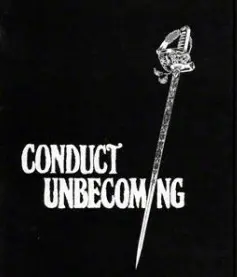Any number of allegations can serve as the basis for an adverse action. An adverse action, like a proposed removal or termination, may be taken at any time against a federal employee for myriad reasons. Those employed by the Government most frequently include allegations of:
- Failure to Follow Instruction
- Off-Duty Misconduct
- AWOL
- Leave Abuse
- Misuse of government Credit Card
- Misuse of government property
- Misappropriation of Federal Property or Theft
- Conduct Unbecoming
The list goes on and on. Most charges although broadly stated (i.e. Theft), require the Government to prove specific allegations against a federal employee and to satisfy particular elements associated with the given charge (i.e. Theft). In a theft charge for example, the Government must prove by preponderant evidence, that an employee took something from the government that they were not authorized to take, and intended to keep the item taken. If the Government fails to prove any one of these elements they cannot take the adverse employment action (i.e. termination or suspension) against the federal employee.
“Conduct Unbecoming” however is a very different animal. There are no specific elements that need to be established. It is a subjective somewhat amorphous concept that hinges on the government’s ability to satisfy some other charge against a federal employee. For example, a Federal Agency might need to prove that there was leave abuse, theft, and/or off-duty misconduct before it can establish that there was any behavior unbecoming a federal employee.
Strategically, this is an add on charge by the government; sometimes used to prove that a termination, rather than a lesser penalty, like a suspension, is warranted under the circumstances. It’s nonsense.
- Practice Pointer: Challenge the underlying conduct alleged. If done successfully, the conduct unbecoming charge will go away.
Notwithstanding, it’s always best to have a federal employment attorney specifically review the allegations to identify the grounds for disputing Conduct Unbecoming charges against federal employees, and, if appropriate, mitigating the penalty if charges are sustained. Federal employment attorneys can do this when responding to proposed adverse actions and, if necessary, in an appeal to the Merit Systems Protection Board in the event of a suspension or wrongful termination.
If you recently received a proposed removal or proposed suspension, or if an adverse action was recently taken, contacting a federal employment attorney right away ensures you have the most time to adequately defend yourself against the Agency. There is limited time to respond to proposed adverse actions and to appeal from adverse actions already taken. Often times same day consultations are available. Early consultation provides both you and your attorney more time to defend your job and your professional reputation.
No post on this website is legal advice, nor is it meant to replace the advice of an attorney experienced in MSPB Appeals and other Federal Employment Law litigation.
Consultation with a Federal Employment Law Attorney to discuss the facts and law of your particular case is necessary before any advice can be offered.

